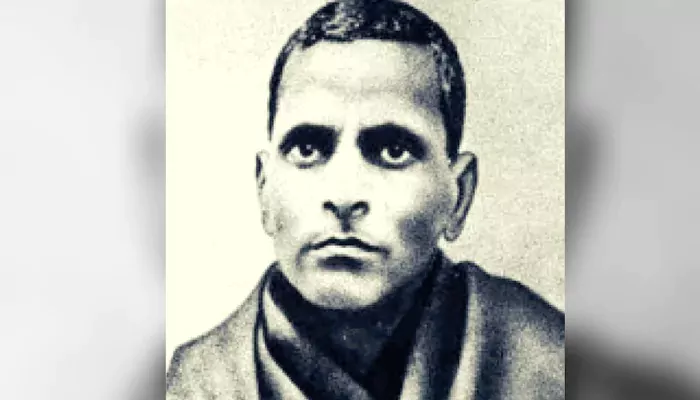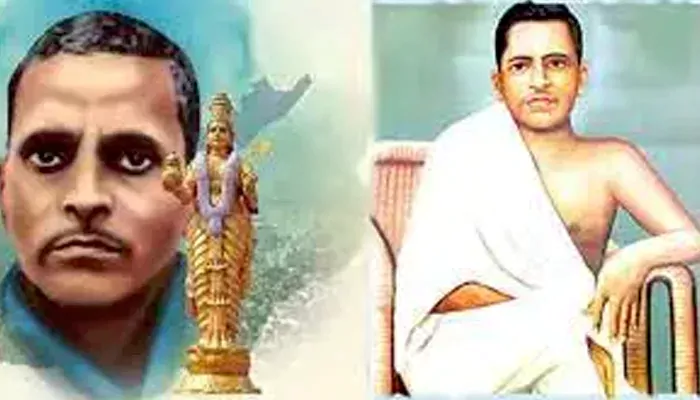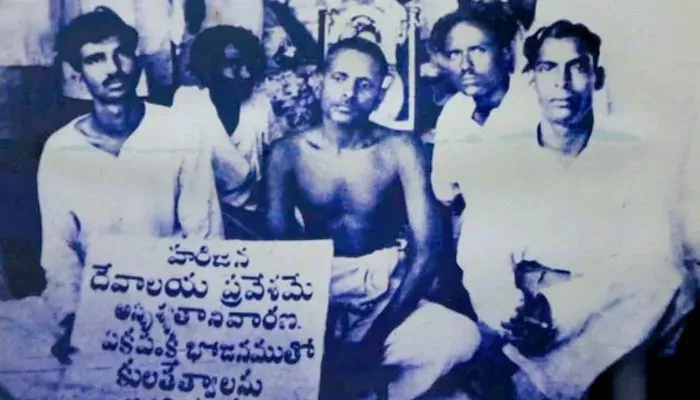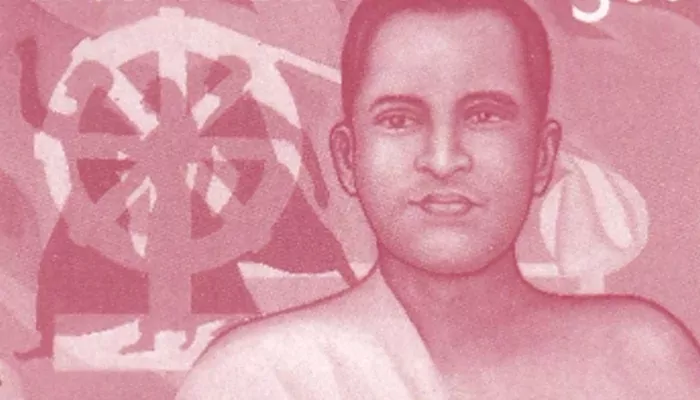
He fasted to death, shaking empires and inspiring new states
Potti Sreeramulu wasn't always a political firebrand. Born on March 16, 1901, in a small town in present-day Andhra Pradesh, he led an ordinary life as a civil engineer. Tragedy struck early—he lost both his wife and newborn child. The heartbreak changed him. He renounced material comforts and immersed himself in the Gandhian movement, joining the Sabarmati Ashram in 1929.
There, he absorbed the values of truth, simplicity, and nonviolence. Gandhi recognised his devotion. Sreeramulu became a dedicated satyagrahi, participating in civil disobedience and championing social reform. But his most profound act of resistance was yet to come.
Before becoming a household name, Sreeramulu had already been challenging deep-rooted injustices. In the 1940s, he launched multiple hunger strikes demanding temple entry rights for Dalits in the Madras Presidency. His fasts were nonviolent but intense. He believed that until caste discrimination ended, true freedom was a myth.
His efforts bore fruit. Temples began to open their doors to those previously barred. But the fight for equality only sharpened his focus on another burning issue—language.

After India's independence in 1947, the demand for linguistic states grew louder. At the time, the Telugu-speaking population was lumped into the Madras Presidency, dominated by Tamil administration. Telugu speakers felt alienated, culturally and politically.
Sreeramulu took up their cause. He believed that language was not just a medium of expression but the foundation of identity and governance. When peaceful requests failed, he resorted to the method he knew best—nonviolent resistance.
On October 19, 1952, Sreeramulu began a fast unto death in Madras, demanding a separate Andhra state. He hoped it would pressure the government to act. Days passed. Weeks followed. The government remained unmoved. Sreeramulu refused both food and water as his health declined.
On December 15, after 56 days of fasting, he died.
His death sparked outrage across Andhra. Riots erupted in cities like Vijayawada and Nellore. Public anger reached Delhi. The outpouring of grief and protest forced Prime Minister Nehru to concede.

Just days after Sreeramulu's death, Nehru announced the creation of Andhra State. It was carved out of Madras on October 1, 1953. The victory was historic, not just for Telugu people but for all linguistic groups in India.
Sreeramulu's martyrdom ignited a national conversation. His protest triggered a larger movement that would lead to the States Reorganisation Act of 1956. That law reshaped India's map based on language, a principle Sreeramulu had given his life for.
Today, Potti Sreeramulu is remembered as "Amarajeevi"—the Immortal Being. Streets, universities, and institutions carry his name. His modest house in Chennai is now a protected heritage site.
He didn't wield a sword. He never shouted slogans. His protest was silent, but its echoes reshaped a nation. He showed the world that one man's moral clarity could alter political destiny.

In an era when regional identities often clash with national unity, Sreeramulu's life offers a powerful lesson. He didn't ask for separation. He asked for recognition. His demand was simple: let people speak in their tongue, govern their affairs, and preserve their culture.
His fast wasn't just about Telugu. It was about dignity.
Potti Sreeramulu didn't just die for a state. He helped build a stronger, more inclusive India—one that speaks in many voices, yet listens as one.